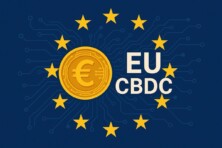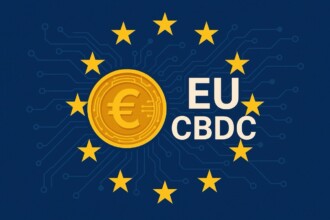The blockchain-based platform will enable brands to trace their products from their point of manufacture to their final destination and end customers in the EU

The European Union Intellectual Property Office (EUIPO) plans to introduce an open source product authentication platform to trace brand products throughout the supply chain to their final destination in the EU by the end of 2023.
The main purpose of a new EBSI-ELSA platform is designed to reassure consumers in the product origin and protect them from counterfeit goods, simultaneously providing support to intellectual property (IP) rights.
The tool will also assist in combating the €412bn (US$450bn) annual trade volume of counterfeit goods globally. This scalable, decentralised, blockchain authentication platform can be used by brands to prove the authenticity of their products. Besides, EBSI-ELSA will enable data exchange between all parties in the supply and logistics chain, as well as risk analysis systems of enforcement authorities and existing EUIPO tools.
The platform will be based on the European Blockchain Services Infrastructure (EBSI). It was created in 2018 when all EU members states, Norway and Liechtenstein along with the EU Commission joined forces to create the European Blockchain Partnership (EBP). The infrastructure leverages blockchain technology to verify information and create trustworthy cross-border services for public administrations, businesses, citizens and their ecosystems.
The new EBSI-ELSA initiative combines EBSI with the concept of digital twins. Therefore, it can provide each individual product, or shipment of products, with a machine-readable label that takes the form of a QR code, RFID or NFC tag. Each label embeds a serialisation code. It will be protected by the brand owner’s signature and authenticated by its EU IP rights. This way, an immutable link between the serialised code of the real product and its digital representation will be established.
The platform consists of two parts: identity register (a public repository of verifiable brand owners’ credentials based on existing EUIPO registers for trade marks and designs) and logistic open protocol (that collects and shares data for anti-counterfeiting operations using blockchain, as well as notarises an audit trail of the product shipment history and relevant events).
Although a unique identifier for each product is not legally required, the EUIPO says, “it’s strongly recommended since it provides real business-to-consumer (B2C) value for brand owners.”
The project has already completed its pilot testing phase involving four brands, two logistics operators and a customs authority that tracked products from manufacturing sites outside Europe through their arrival at an EU border to their final destination of EU-based local distribution centres.
Here is How Blockchain in Supply Chain Management Can Improve Business Efficiency and Transparency.









